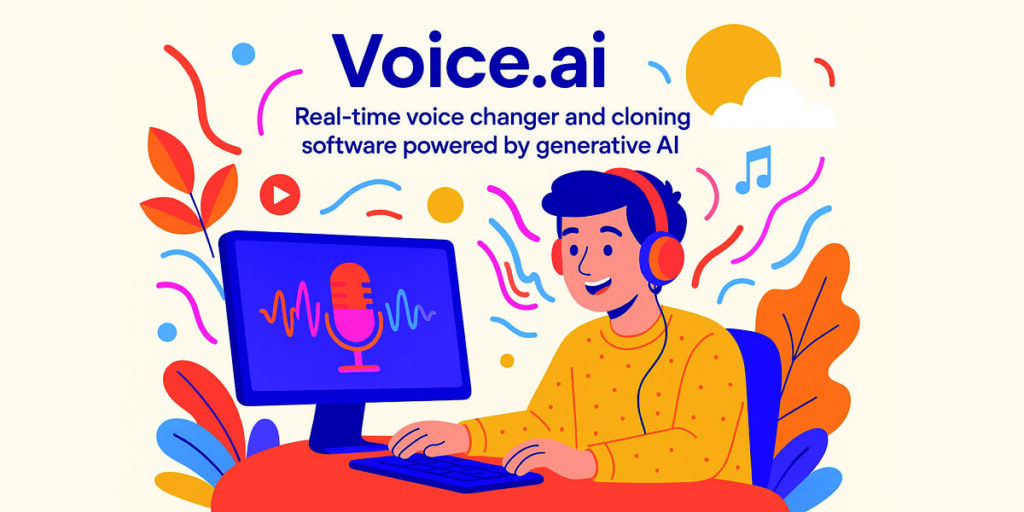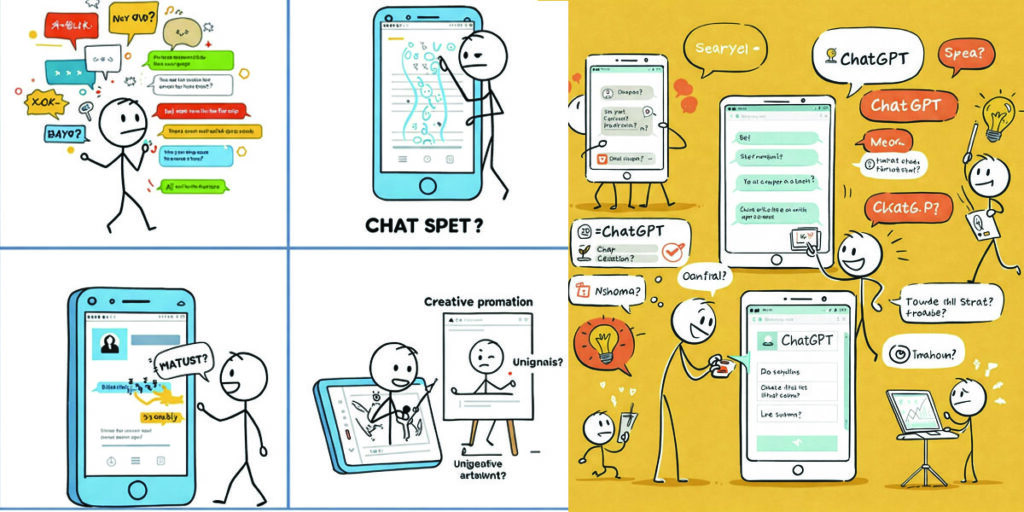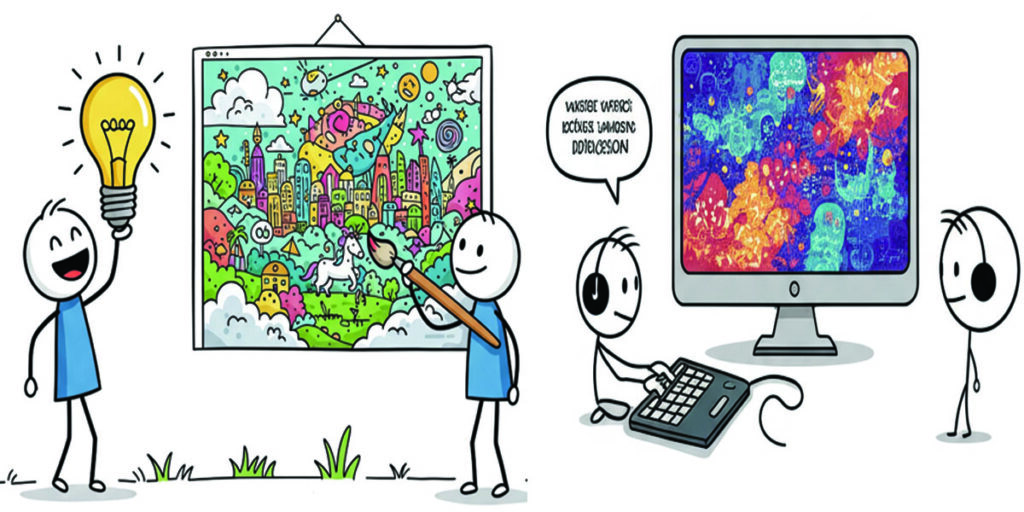Real-time voice changer and cloning software powered by generative AI
Harnessing the power of generative artificial intelligence, Voice.ai, a real-time voice changer and cloning software, sits at the cutting edge of a profound transformation affecting the human voice – a cornerstone of communication and identity – in this age of swift technological progress. This article will explore the historical journey of voice modification technology, examine the economic landscape surrounding Voice.ai and its counterparts, and analyze the complex networking dynamics that fuel their increasing impact.
A Historical Overture: From Mechanical Mimicry to Algorithmic Artistry
The desire to alter and manipulate the human voice is not a novel fascination. Its roots can be traced back to early mechanical inventions and theatrical contrivances designed to project or disguise vocal characteristics. In the late 19th and early 20th centuries, devices like megaphones and rudimentary sound modification tools emerged, primarily used for amplification and special effects in performances. These early efforts, though limited in their sophistication, laid the groundwork for the technological advancements that would follow.
The advent of analog electronics in the mid-20th century marked a significant leap forward. Vocoders, initially developed for military applications in secure speech transmission, found their way into the music industry, allowing artists to synthesize and manipulate vocal sounds in groundbreaking ways. Iconic tracks featuring vocoders showcased the potential of altering vocal timbre and creating robotic or otherworldly effects. These early electronic voice changers, while requiring specialized hardware and technical expertise, demonstrated the artistic and communicative possibilities of voice modification.
The digital revolution of the late 20th century ushered in a new era of audio processing. Digital signal processing (DSP) algorithms enabled more precise and versatile manipulation of audio signals, leading to the development of software-based voice changers. These tools offered greater accessibility and a wider range of effects, finding applications in entertainment, gaming, and even professional audio production. However, these early digital voice changers primarily relied on pre-programmed effects and lacked the ability to convincingly replicate or synthesize specific voices.
The emergence of artificial intelligence, particularly deep learning and generative models, represents a paradigm shift in voice modification technology. Generative AI algorithms, trained on vast datasets of audio recordings, can learn the intricate patterns and nuances of human speech, enabling the creation of highly realistic voice clones and sophisticated real-time voice transformations. Voice.ai stands as a prominent example of this technological leap, harnessing the power of generative AI to offer users an unprecedented level of control over their vocal identity.
The Economic Symphony: Market Dynamics and Monetization of Vocal Innovation
The economic market surrounding voice modification technology, particularly AI-powered solutions like Voice.ai, is experiencing significant growth and diversification. Several key factors contribute to this burgeoning market:
- Content Creation and Entertainment: The demand for unique and engaging audio content is soaring across various platforms, including social media, video games, streaming services, and podcasts. Voice.ai and similar tools empower content creators to add distinctive vocal elements to their work, whether it’s creating character voices for animations, adding humorous effects to videos, or enhancing the immersive experience of games. The ability to instantly transform one’s voice into a recognizable character or a fantastical persona opens up new avenues for creative expression and audience engagement.
- Gaming and Virtual Interactions: The gaming industry, a massive global market, is increasingly focused on creating immersive and social experiences. Voice.ai provides gamers with the ability to adopt different vocal identities, adding a layer of role-playing and anonymity to online interactions. This can enhance the social dynamics within games, allowing players to embody their avatars more fully or simply have fun with vocal disguises. As the metaverse and virtual reality environments continue to evolve, the demand for realistic and customizable vocal avatars is expected to rise, further fueling the market for voice modification software.
- Accessibility and Inclusion: While often associated with entertainment, voice modification technology also holds significant potential for accessibility and inclusion. Individuals with speech impairments or those undergoing voice transition can utilize these tools to communicate more comfortably and authentically. Real-time voice changers can help individuals align their voice with their gender identity in social interactions or provide a more natural-sounding voice for those who rely on assistive communication devices. This aspect of the market underscores the ethical and societal value of voice modification technology beyond mere entertainment.
- Intellectual Property and Branding: The ability to create unique and recognizable vocal identities through voice cloning technology has implications for branding and intellectual property. Businesses and individuals can potentially develop proprietary voice signatures for marketing campaigns, virtual assistants, or even personal branding. This raises complex questions about voice ownership, licensing, and the potential for misuse, but it also highlights the economic value that can be attached to distinct vocal identities created through AI.
The monetization strategies employed by Voice.ai and its competitors vary, but often include:
- Subscription Models: Offering tiered subscription plans that provide access to a wider range of voice models, advanced features, and higher usage limits.
- One-Time Purchases: Selling perpetual licenses for specific versions of the software with a defined set of features.
- In-App Purchases: Allowing users to purchase additional voice models, sound effects, or customization options within the application.
- API Access: Providing developers with access to their voice cloning and changing APIs for integration into other applications and platforms, often with usage-based pricing.
The competitive landscape of the AI-powered voice modification market is evolving rapidly. While Voice.ai has established a strong presence, other companies and open-source projects are also developing similar technologies. Competition is likely to drive innovation, leading to more sophisticated features, wider voice model libraries, and potentially more accessible pricing for consumers.
The Networking Nexus: Viral Spread and Community Building
The success and widespread adoption of Voice.ai are significantly influenced by network effects. These effects occur when the value of a product or service increases as more people use it. In the context of voice modification software, several types of network effects are at play:
- Direct Network Effects (though less pronounced): While not as strong as in social media platforms, there is a degree of direct network effect. As more users adopt Voice.ai and create unique voice profiles, the platform becomes a richer ecosystem for those seeking diverse vocal identities or inspiration for their own voice creations. The ability to share and potentially interact with others using modified voices could also contribute to this effect in the future.
- Indirect Network Effects (Content and Compatibility): The most significant network effects for Voice.ai are indirect, driven by the creation and consumption of content. As more users utilize the software to generate voice-modified content (videos, streams, games), the platform gains greater visibility and attracts new users who are drawn to this content. Furthermore, compatibility with popular platforms like Discord, Twitch, and YouTube creates a strong network effect. The more widely Voice.ai integrates with these platforms, the more valuable it becomes for users who want to utilize voice modification in their existing online interactions.
- Community and Shared Creations: Platforms like Voice.ai often foster a sense of community among their users. This can involve sharing custom voice models, tips and tricks for achieving specific vocal effects, and showcasing creative projects that utilize the software. A vibrant and engaged community can significantly enhance the user experience, encourage word-of-mouth marketing, and attract new users who are drawn to the collaborative and creative environment.
- Data and Algorithm Improvement: Generative AI models improve with more data. As more users interact with Voice.ai and contribute voice samples (anonymized and with consent, ideally), the underlying AI algorithms can be further refined, leading to more realistic and versatile voice cloning and changing capabilities. This data-driven improvement creates a positive feedback loop, where increased usage leads to a better product, which in turn attracts more users.
The viral potential of voice modification technology also contributes to its network effects. Humorous or impressive voice transformations can easily be shared across social media platforms, leading to organic growth in user adoption. The novelty and entertainment value of being able to sound like a celebrity, a cartoon character, or even oneself with subtle variations can be a powerful driver of viral spread.
Ethical Considerations and the Future of Vocal Identity
The rise of sophisticated voice modification and cloning technology like Voice.ai also brings forth significant ethical considerations that need careful examination:
- Misinformation and Deepfakes: The ability to convincingly clone voices raises concerns about the potential for misuse in creating audio deepfakes for malicious purposes, such as spreading misinformation or impersonating individuals. Robust safeguards and detection mechanisms are crucial to mitigate these risks.
- Privacy and Consent: The collection and use of voice data for training AI models and enabling voice cloning require stringent privacy protocols and explicit user consent. Transparency about how voice data is being used is paramount.
- Intellectual Property and Ownership: The legal and ethical frameworks surrounding the ownership and use of cloned voices are still evolving. Clear guidelines are needed to address issues of copyright, licensing, and the rights of individuals whose voices are being replicated.
- Impact on Human Connection: While voice modification can be a source of entertainment and creativity, there are questions about its potential impact on genuine human connection and the value of authentic vocal expression.
Looking ahead, the field of AI-powered voice modification is poised for further advancements. We can expect to see:
- Increased Realism and Naturalness: AI models will likely become even more adept at capturing the subtle nuances of human speech, making cloned and transformed voices virtually indistinguishable from natural ones.
- Greater Personalization and Customization: Users may have more granular control over various aspects of their vocal identity, allowing for highly personalized voice creations.
- Integration with Emerging Technologies: Voice modification is likely to be integrated more seamlessly with augmented reality (AR) and virtual reality (VR) environments, enhancing the immersiveness of these experiences.
- New Creative Applications: Artists, musicians, and storytellers will continue to find innovative ways to utilize voice modification as a creative tool.
The Evolving Soundscape
Voice.ai represents a significant milestone in the history of voice modification technology, leveraging the power of generative AI to offer unprecedented capabilities for real-time voice changing and cloning. Its growth is fueled by a dynamic economic market driven by content creation, gaming, accessibility needs, and the potential for vocal branding. The platform’s success is further amplified by network effects, where increased user adoption and content creation enhance its value and attract new users.
However, the transformative power of this technology also necessitates careful consideration of the ethical implications surrounding misinformation, privacy, and intellectual property. As AI-powered voice modification continues to evolve, it will undoubtedly reshape the soundscape of our digital interactions, offering new possibilities for creativity, communication, and self-expression while demanding responsible development and deployment. The echoes of innovation emanating from platforms like Voice.ai are not just altering how we sound, but also how we connect, create, and perceive vocal identity in the 21st century and beyond.




















